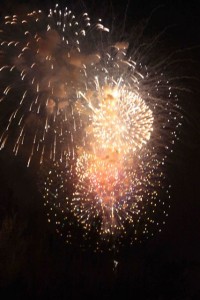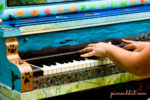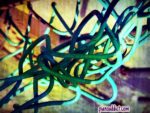Summer Reading
 For me, one of the great things about summer is that I have the time to catch up on my reading. Actually, it is 100+ degrees for months on end here. Reading and actually leaving town, are about the only great things about summer. Please, don’t get me started on the monsoon rains, flooded streets, lightning strikes, and dogs who are afraid to leave the safety of the house even when they have to go so bad their eyeballs are flooding.
For me, one of the great things about summer is that I have the time to catch up on my reading. Actually, it is 100+ degrees for months on end here. Reading and actually leaving town, are about the only great things about summer. Please, don’t get me started on the monsoon rains, flooded streets, lightning strikes, and dogs who are afraid to leave the safety of the house even when they have to go so bad their eyeballs are flooding.
I have put together a list of a few of my favorite books about piano, music, teaching, and the artistic process which I love to revisit every now and again. Included are works of both fiction and non-fiction. The list is in no particular order simply because I find it hard to choose favorites. Whatever I am reading at the time is automatically my favorite- just as with my music. Enjoy!
The Small Rain & A Severed Wasp, Madeleine L’Engle
Madeleine L’Engle is well known for her wonderful books for children and young adults. What many people don’t know is that she also penned books for adults. These two novels were written over a span of 37 years. The first, The Small Rain, is set before World War II and chronicles the path of the young character Katherine Forrester as she grows into her musical self. The second, A Severed Wasp, is set in the 1980’s. Katherine is now retired and facing the task of coming to terms with difficult memories.
The Song of the Lark, Willa Cather
Written in 1915, The Song of the Lark, follows the 11 year old singer Thea Kronberg as she travels throughout the US and to Europe to pursue her dream of becoming a great artist. In this novel, Willa Cather explores the boundaries of true art and the prejudices of those who would contain it.
A Mixture of Frailties, Robertson Davies
The third novel in the Salterton Trilogy, A Mixture of Frailties begins with a search for a young artist deserving of a legacy from the late Mrs. Bridgetower. The executors choose the singer Monica Gall and we follow her as she is lifted out of her small existence and into the larger world.
The Tao of Teaching, Greta Nagel
The sub-title of this book reads: The Special Meaning of the Tao Te Ching as Related to the Art and Pleasures of Teaching. Greta Nagel uses examples from many different classrooms to illustrate how we all, classroom and independent teachers alike, can step outside the expected to alternative pedagogies which remain rigorous while still allowing for creativity and success.
The Last Word On The Gentle Verbal Art of Self Defense, Suzette Haden Elgin
In our lives as a teachers, we all sometimes find ourselves in awkward situations with coworkers, volunteers, students, and parents. This user friendly book outlines strategies for understanding what is underlying an awkward exchange and how to cope with it. There are also helpful chapters on dealing with those who would manipulate both you and the situation.
Piano Lessons, Noah Adams
Here, Noah Adams recounts his “True Adventure” of learning to play the piano as an adult and coming to terms with what you can do well now versus what you want to be able to do.
Piano Pieces, Russell Sherman
Russell Sherman penned this “diary of an old and unregenerate crust”, in which he goes about saying “many things worth saying about piano playing and related topics, which others might well say better, yet deserve to be whispered or shouted however crudely.” These delightful “pieces” range from several sentences to a page and a half in length and explore every pianistic and artistic topic imaginable.
Bird by Bird: Some Instructions on Writing and Life, Anne Lamott
While not specifically a book on music, Bird by Bird is a very very funny look at the inner artistic process through a writers eyes. Be warned, four letter words are present and accounted for. However, her chapters on sloppy (not her actual word) first drafts and the radio station K— which plays an endless stream of advice, loathing, and self doubt mixed with self aggrandizement are simply not to be missed.
Quintet: Five Journeys Toward Musical Fulfillment, David Blum
The inspiring journeys, from childhood to mature artistic fulfillment, of Yo-Yo Ma, Jeffrey Tate, Josef Gingold, Richard Goode, and Brigit Nilsson are chronicled in this volume.
Images: The Piano Music of Claude Debussy, Paul Roberts
Using illustrations from Baudelaire, Watteau, Verlaine, and many others, Paul Roberts gives specific examples of the origins and meaning of Debussy’s piano compositions. I always find the chapter on the Prelude, Sounds and Scents Linger on the Evening Air particularly meaningful. In it Roberts traces how Debussy referenced, in sound, the entirety of Baudelaire’s poem, Harmony of Evening, rather than just the third line from which he took the title.
With Your Own Two Hands: Self Discovery Through Music, Seymour Bernstein
Seymour Bernstein discusses the connections between playing an instrument and life. Along the way we gain many insights into the connections between teaching and life.



I recently read “Why We Make Mistakes” by Joseph T. Hallinan. He covered a wide range of areas in which we make mistakes including some related to musical performance. I found it very interesting as well as entertaining. I hope you enjoy.
Thanks for the suggestions. I’ll add Perfect Pitch; a Life Story, by Nicolas Slonimsky the longtime editor of Baker’s Biographical of Musicians, who was one of music’s most colorful characters. With delightful humor, he describes his long life (he died at the age of 101 in 1995), his work as a composer and musical theorist, and his relationships with musicians as varied as Igor Stravinsky and Frank Zappa.